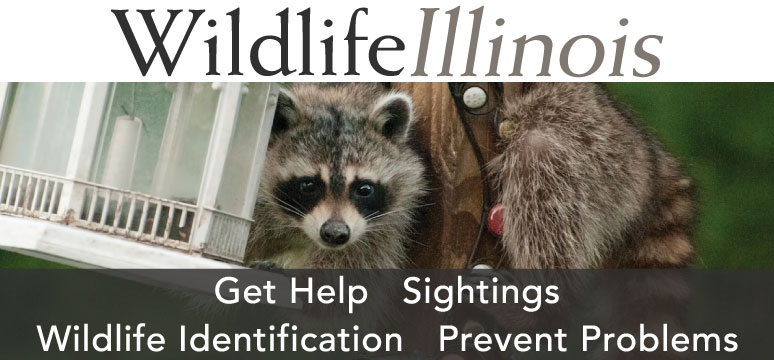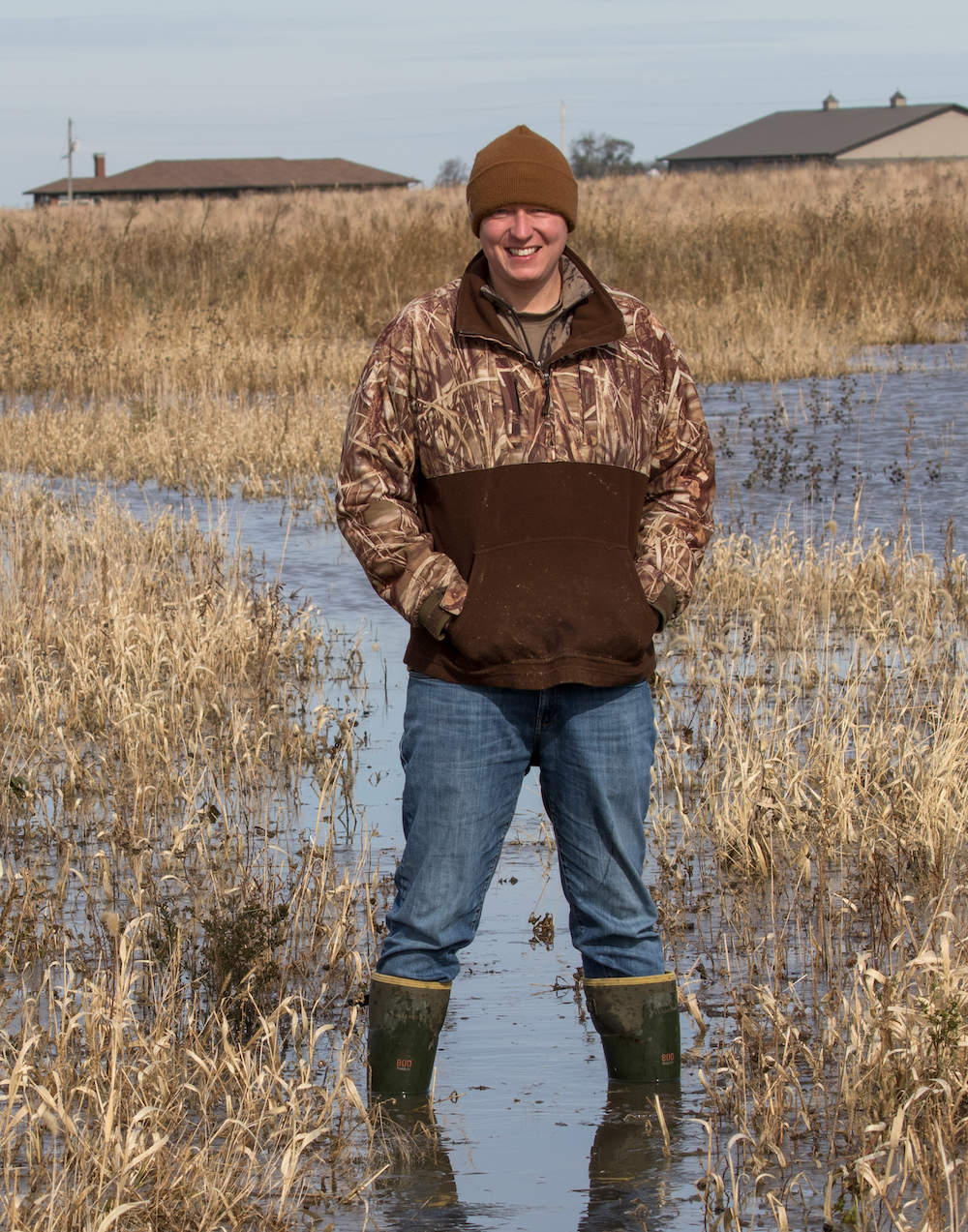
Greater yellowlegs at a Partners for Fish and Wildlife Program restored wetland. Photo by Mike Budd/USFWS.


Greater yellowlegs at a Partners for Fish and Wildlife Program restored wetland. Photo by Mike Budd/USFWS.

More than 95 percent of the land in Illinois is privately owned. In recognizing that fact, the U.S. Fish & Wildlife Service (USFWS) offers up their Partners for Fish and Wildlife (PFW) Program to private landowners who wish to steward their land. The PFW Program offers technical and financial assistance to private landowners for habitat restoration and enhancements, if their land falls within their focus areas. Going outside of the focus areas is possible, but only for great projects, such as a 10-acre wetland restoration or a 40-acre prairie restoration.
Currently, the PFW Program consists of three passionate and dedicated biologists. Although they are all new to the PFW Program, with all three being on board for less than a year, they have all worked in the conservation field significantly longer. Each biologist brings a wealth of knowledge and experience to your kitchen table, where you can meet them to discuss your habitat goals over a cup of coffee.

Scott James, Private Lands Biologist out of Moline, is a native of Rock Island and attended college at Southern Illinois University. James served in the Army National Guard before working as a Farm Bill Wildlife Biologist for Pheasants Forever (PF) between 2012 and 2020. With PF, he spent 3.5 years in southeast Missouri and 5 years in northwest Illinois working with conservation partners to help landowners restore wildlife habitat on their property. His work will focus primarily in the northwest corner of the state where he will assist landowners with pollinator habitat and wetland restorations. A special emphasis for James is finding areas where our projects can benefit not only the monarch and bobwhite quail, but also the federally endangered rusty patched bumble bee. Contact Scott James via email at scott_james@fws.gov or phone at (309) 207-3403.

Jason Bleich, Private Lands Biologist based out of Champaign, will spend most of his time in Ford, Iroquois, Livingston, Will and Kankakee counties. Bleich holds a bachelor’s degree from Southern Illinois University and has focused on private lands conservation in central Illinois for the past 10 years. Previously, he worked for Pheasants Forever & Quail Forever as a Farm Bill Biologist and later as a Conservation Specialist specializing in native seed mixes, sales and technical advice. Currently, he is busy restoring shallow water wetlands on private lands where his projects are producing ducks, marsh bird habitat, shorebird habitat and clean water. Jason Bleich can be reached at Jason_bleich@fws.gov or (217) 372-7594.

Emily Hodapp, the newest Private Lands Biologist, is stationed in Springfield. Hodapp studied Biology at Purdue University and earned her Masters of Natural Resources from Virginia Tech. She started working for the USFWS in 2015 at Muscatatuck and Big Oaks National Wildlife Refuges to improve pollinator habitat and restore bottomland forests. In 2019, she joined the Illinois River National Wildlife and Fish Refuges Complex where she has taken on wetland, prairie and infrastructure improvement projects. Hodapp will be working with conservation partners and landowners throughout the Illinois and Mississippi rivers areas to produce more duck food while also promoting Boltonia decurrens, a federally threatened plant species. In addition to her work on the rivers, she will tackle hill prairie restorations which will benefit the monarch butterfly, pollinators, northern bobwhite, migratory songbirds and more. Hodapp is so new to the Program that she doesn’t even have a cell phone yet, so please reach out to her at emily_hodapp@fws.gov.
Quick Facts

Mike Budd is the Private Lands Coordinator for the U.S. Fish and Wildlife Service in Illinois. He has worked with private landowners for the majority of his 12-year career in natural resources, including stints with Ducks Unlimited. Originally from Michigan, Budd has had the opportunity to work in multiple states including Virginia, New York and Arkansas and is excited that Illinois has such a rich opportunity for wetland restoration. At each stop, he has picked up a new tip or trick from private landowners on how to restore wetlands efficiently and effectively. Budd, his son, daughter, wife and old retired duck-dog live in Sangamon County.
Submit a question for the author
Question: I own 100 acres of farmland in Woodstock and we rent 800 acres of farmland in Lake and McHenry Counties of which 101 acres of MOSA certifiable organic fields. We rent a lot of land from McHenry County Conservation District which has required buffers, which would be great to have Pheasant habit growing.
I am interested in working with your organization to development Pheasant habit program. I own a lot of farm equipment and no-til planters.